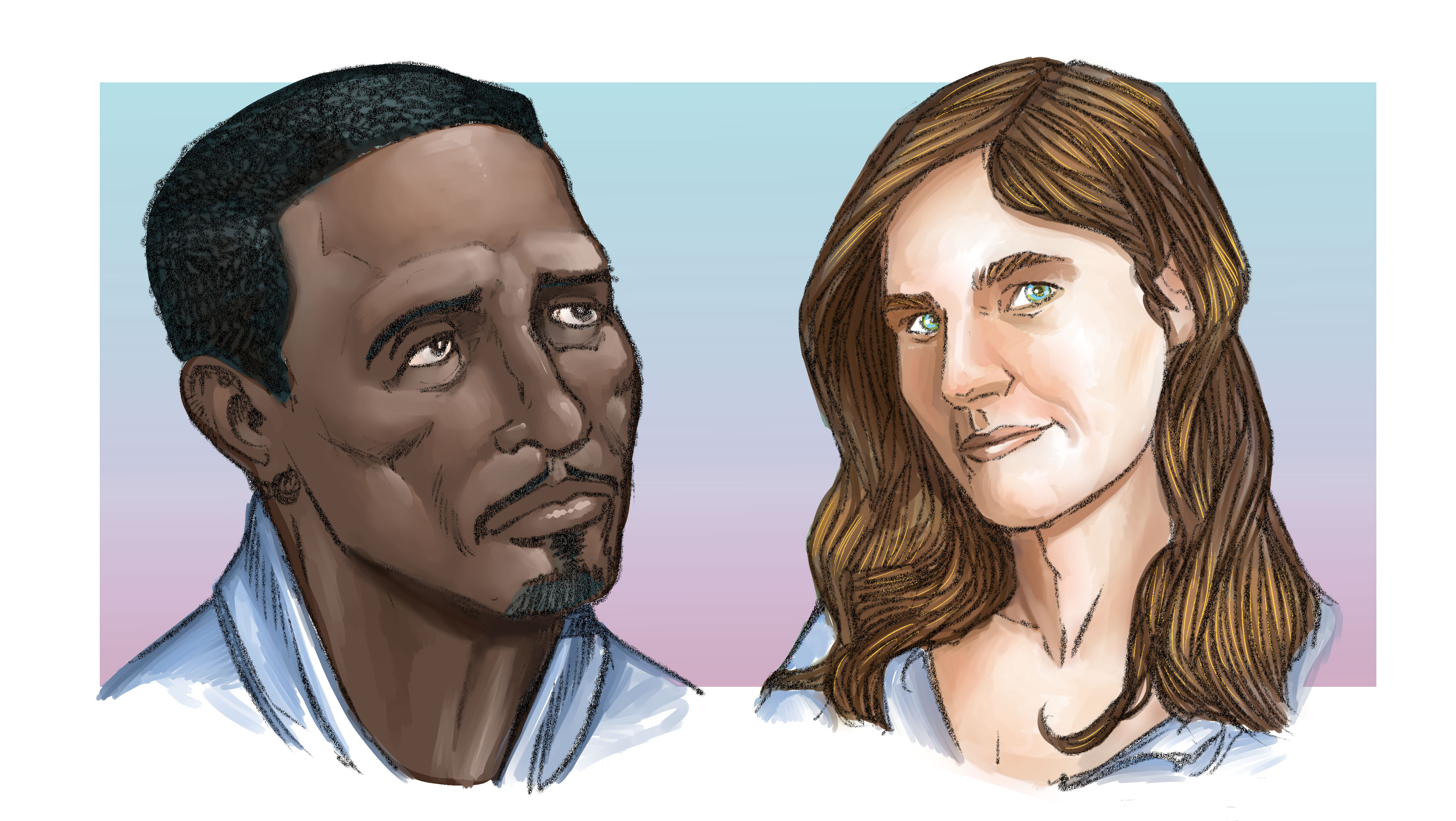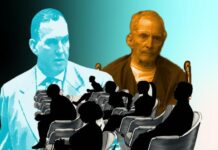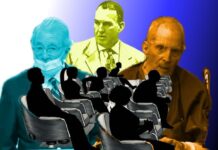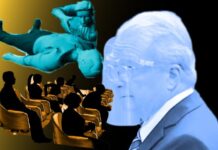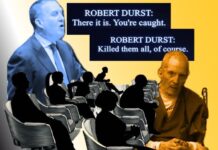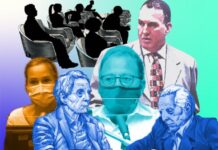“These are creative times”
Obie Anthony, Founder, Exonerated Nation
Social distancing and self-quarantine are difficult measures for everyone, but especially for the formerly incarcerated. Having your ability to gather restricted and being forced indoors is triggering. With the necessary cancellation of the annual Innocence Network Conference, many exonerees are feeling adrift and alone. I reached out to Obie Anthony, founder of Exonerated Nation, a nonprofit organization that assists exonerees in reintegrating into society, to talk about how he’s facilitating community in these uncertain times.
Amanda Knox
How are you holding up?
Obie Anthony
Oh, I’m holding up good. Just taking our time with it, you know what I mean? There’s not that much movement going around out here, so we’re just keeping ourselves safe.
Amanda Knox
I wanted to remind our audience who you are and what your wrongful conviction was about.
Obie Anthony
So, my name is Obie Anthony. I was framed and put in prison back in 1995 for a murder/robbery I didn’t commit. I spent 17 years in prison before the Innocence Project took care of my freedom in 2011. And, yeah, I was just being home. So, you know, going through the same struggles and ups and downs that all of the other exonerees around the state, trying to figure out my footing, my best place where I fit in, you know, and how much I can be of service to the community.
Amanda Knox
A little known fact, we’re actually freedom twins.
Obie Anthony
Yeah. Me, you, and Michael Morton all walked out the exact same day, October 4th, 2011. That’s like ultimate synergy for me, where you have this trilateral event that transpires straight out of the universe. You know what I mean? It happens for all three of us at the same time. Boom. The doors open.
Amanda Knox
You know what, though? Also Damien Echols.
Obie Anthony
Ah, four, we have a quad, we have built a foundation. Alright. It takes four points to build a foundation. We are the cause of all of the reform that’s transpiring in the system and we are the reason for that as well. It was because they framed and put us in prison, it was our fight afterwards not only to prove our innocence, but just make sure that that doesn’t happen to anyone else, that manifested in laws being changed, that’s that foundation.
Amanda Knox
So one thing I wanted to chat with you about is the very specific challenges that you faced upon reentering the free world after 17 years in prison.
Obie Anthony
The biggest challenge that I face and still face, is an emotional one. I can’t get away from being wrapped around a traumatic situation, but I defend myself by the works in which I do. For me, you know, experiencing someone else’s suffering makes me forget about my own. It gives me time, in other words, to concentrate on how to help someone else. On the flip side of that is the connectivity, right? The acceptance, that aspect of being reintegrated back into the community, right? Who will accept me, right? I think when it comes to exonerees, the first thing that comes to people’s mind is that you missed so much. But for us, it’s the opposite, right? Because we stay so astute, we’re focused on not only our exoneration, but what was going on around us at the same time, outside of an institution and inside of the institution. Another challenge is having that effective communication with individuals so you won’t have that vibe of being a prisoner. Talking like one, moving like one. If you walk like a duck, talk like a duck, you must be a duck, you know? A big challenge for me was getting back acclimated into the family unit, first and foremost. If I can acclimate successfully and nicely and smoothly with my family, with all of the hardships that we experienced, then for surely when it comes to a stranger in the community who knows not that struggle, I should be able to acclimate myself. But you know the old saying, easier said than done.
Amanda Knox
Yeah.
Obie Anthony
Easier said than done. It’s nine years we’ve been out. Nine years and I cannot not, this is forever there now. I was just thinking about that today. Nine for me is the complete number. It’s, like, the finish and then you can start at 10, with zero going onto something else.
Amanda Knox
Yeah.
Obie Anthony
And for me, I was hoping that at this ninth year I’d be past this, that I’ll be ready to move forward into another chapter within my own personal life. But, struggle brings forth strength and character. So I’m grateful for that.
Amanda Knox
Oh, Obie. I hear you.
Obie Anthony
Yes. You know. That’s us, that’s us. And, I’m just grateful to go through what we go through cause it opens the door for my imagination to be creative, to find places to help.
Amanda Knox
So how did you come to found Exonerated Nation?
Obie Anthony
I think it was back in 2012, I believe it was in Kansas City. We got to see Biz Markie out at the conference and it was myself, Josh Kezer, a couple of other exonerees that I remember being in the room. Then you had Justin Brooks, Barry Scheck, Peter Newfield, Rebecca. We’re having a conversation and it was there, Amanda, I joke you not, I kept hearing the correction officers in them. I just kept hearing “separate,” right? They was calling us, “Texas exonerees,” “California exonerees,” and it was just an outburst. I’m like, “Man, we’re not separate like you’re saying. We are one. We are a nation. The same criminal justice system that had wronged me, wronged him.” Then I had a chance after that in 2013. Tom Mariano was having a bill to hold prosecutors accountable and someone reached out to me from the Hernandez Strategy Group to come up there and talk about the prosecutor’s misconduct in my case. And I was thrilled to do that, right? This energy of advocacy was already in me from the conference, so I was thrilled. “Yeah, yeah, yeah. I’ll come up there.” And so while there, talking to legislators, they asked me other questions like, “So what are you doing now? What’s happened since you walked out the door?” One of them specifically said, “Are you joking? You gotta be joking.” That it was nothing there for me. Y’all wrote the law. You put this in place. You know that it was nothing on the books for individuals that you framed and put in prison because you said that the criminal justice system didn’t do that. But when I came home, it was no services. I didn’t get no $200 gate money. I didn’t get no counseling. I didn’t get no help, no social worker, nowhere to go, how to, no, none of that. And one of them was saying, “You didn’t get nothing?” I’m like, “I’m literally telling you I’m fighting with the Victim’s Compensation Board right now.” And so I left. And I joke you not, maybe about three weeks later, I get a call from the Hernandez Strategy Group and they say to me that, after I left the Capitol, that the legislators there was moved by my story, that they was inspired to want to do something and they begin to start crafting up a bill. AB-672. But they had wanted to name the law after me, calling it Obie’s Law. And I was like, “What? You joking me, right?” So I’m excited about that and it was started from a conversation in 2012 there at an Innocence Conference. I begin to start reaching out to different individuals about how to, right? How to do this? Where do I go? How do I begin to do this? Where do I learn this and how do I get this information? And then finally, in 2015, I got my state and federal 5013C, becoming a national organization.
Amanda Knox
So what does Exonerated Nation do?
Obie Anthony
Our mission is to help with the debilitating effects of being wrongfully convicted. In my mind, it was about, you know, creating a place like the YMCA, where everybody could come to, where they get all of the social work that they need, a place to work out, maybe do some meditation, all of that. And also have a place there for individuals who have nowhere to go and nobody to turn to. So they have us. That was my vision. And now we are able to offer temporary jobs. We have a leadership development program. We also have our holistic healing. We do convenings. We now have housing through our bill, which was recently passed in the state of California, AB-701, which now gives newly released exonerees a whole lot of help. Another thing that we do is the pursuit of legislative changes. So our three-headed thing is housing, leadership development, and our holistic healing. And we do our retreats.
Amanda Knox
One thing that has been a magical life-changing moment for me is the Innocence Network Conference, the one time of year that we get to be around other exonerees. What is the value of coming together like that once a year?
Obie Anthony
It’s super, super huge. I remember my first conference. It’s that hallelujah song. Ah! It’s that for me, you know what I mean? It was that hallelujah moment. Like, one, it was the comfort that you weren’t alone. But two, it was the shocking amazement of all of the people that this happened to. But then it was the realization that I could turn to you, Amanda, who was incarcerated wrongfully in Italy, and we can talk to each other. You have understanding. And there’s certain things you and I could talk about that no one in the greater public can talk about. And coming to those conferences is that for us because, you know, we don’t get that. It’s far and few where you may only have four exonerees in the state, but they’re so spread out and so they only come together during these big conferences. And when everybody is by themself it’s just lonely, particularly if you having issues and trouble with the reintegration in the family unit. And so conferences are a very intricate part of our reintegration because not only do we see the help that helped us, but we see the help that it helped, and where we can help, too, right? Because we can make other connections with other exonerees and you know, “Hey, look, I know I can help you out. I’m doing this over here. Hey, look, how about us connect?” And that’s what happens, right? We build community. It’s like family, man. You miss your sister. You miss your brother. I miss you.
Amanda Knox
I miss you, too!
Obie Anthony
I miss just hanging out, running around, you know, doing what we do. And not to be able to do that this year was bummy. It was in Chicago, may have been freezing. But I know we would’ve kept each other warm.
Amanda Knox
When I found out, I was like, “You know what? This would have been an extraordinary conference for the coronavirus to spread, just because we all love each other so much that we can’t not hug each other.”
Obie Anthony
It was like, “Oh yeah, I know where I could get some spread going on. There’s going to be a lot of love going on there.”
Amanda Knox
What did you think when you got the email saying that we had to cancel?
Obie Anthony
I went straight to my creative place. The moment that I seen it, the conference was canceled, I was like, “Oh wow, what are we going to do? Gotta figure something out, man. We gotta gotta figure something out,” I’m part of the exoneree group email, and I’m reading through the upsetness about not being able to convene. And it just turned me to my creative space.
Amanda Knox
I was so thrilled when I got your invitation to do this Exonerated Nation meetup. What made you think this is the way to go?
Obie Anthony
Because, sitting back, me and the wife, we was sitting back in the house and you know, watching TV, you know, you’re getting flooded with news, but one thing that stood out in my mind was the announcement to ten to the group. I immediately got triggered because only thing I could hear was the dang dude in the tower: “Break up the group! Five to the group! Five to a group!” Because in California prisons, it’s no more than five to the group when you out on the yard. It kind of put me there. And I immediately thought, “Wow, like how’s everybody else feeling right now?” I start thinking about my co-defendant, spent ten years in the hole. And then to have to self-confine yourself, mentally, it was just a lot. And I don’t want our sisters and brothers to be in a place where it’s a lot by themselves. And so I thought that, “Sometimes I conduct meetings via Zoom or some sort of kind of video chat. Maybe we could do a virtual meeting?”
Amanda Knox
Have a lot of people signed up already?
Obie Anthony
We has 12. I think 30 individuals would be comfortable. You can have a discussion about, “Where are you at?” Type of, “Where you at now?” Have a focused conversation on that. But at the same time still allow for space in there. That open, free, as we enjoy while we at the conference, just that get-together. Each person talks to one another, “Hey look, man, what’s been going on with you, man? Oh, you know, this and that.” But just sharing space, right? I love that. I love to be able to share a space, a space where we having confidentiality. This is us, it’s our unit. This is what we do. This is our household.
Amanda Knox
Are you planning on hosting further get-togethers like this after this one?
Obie Anthony
Absolutely. Yeah. I really want to see how this turn out is. This is something that they love. This is something that they want to do. They want to be able to come together and then being put in a leadership position, I put myself at the forefront of having to figure that out.
Amanda Knox
I know our exonerees, and some of them aren’t so tech savvy. How are we reaching out to those guys?
Obie Anthony
There are a large portion of the population that is not that tech savvy. We need to make this as simple as one, two, three, it’s possible. You just bam, you just answer the call and you’re on. Thinking about that. Also thinking about other ways to where we have a virtual convening maybe every three months, whoever want to click in and all you gotta do is just touch it. Being creative in bringing us together, helping us to stay focused, because coming together, we help each other in thinking about what we can do in our own particular areas and how we can be successful in the work that we’re doing.
Amanda Knox
Do you have any final thoughts?
Obie Anthony
Words are very important, so I don’t want to say that these are trying times. I just think that these are creative times. Looking at it from the creator’s standpoint, looking at it from up from the upwards downwards, a time for us to slow down, rejuvenate ourselves. A lot of us burn ourselves out during the course of our advocacy work and the work that we do and we very seldom give time to ourselves. So this is the lesson from the Creator. Sit down and enjoy this time. Be in your creative space. And when we have our normalcy, we come back with fresh ideas. So, big hugs to everybody. Just want to say thank you, Amanda, so much for the opportunity. I love you so much for the work that you’re doing. You’re a blessing to the community.
Amanda Knox
Oh, I love you, Obie. And I just love your creative spirit and your open heart. Thank you so much. I’ll talk to you on Friday.
Obie Anthony
Talk to you on Friday. See you in the meeting.

